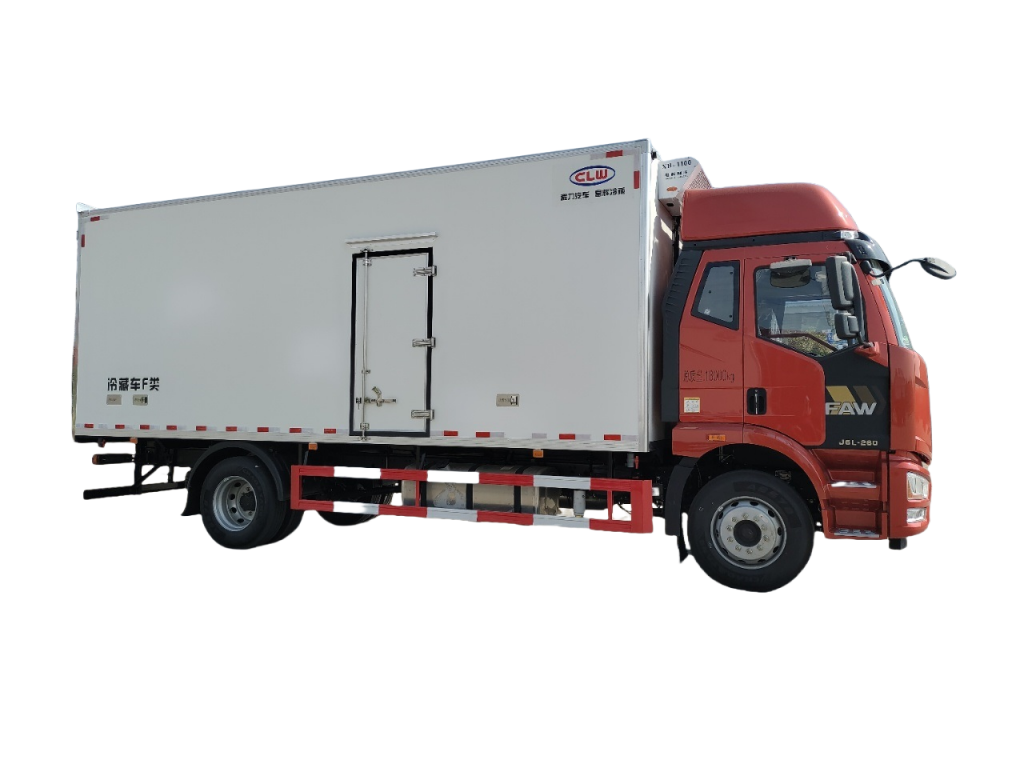Introduction
Work truck trailers play a crucial role in various industries, transporting goods, equipment, and materials to different locations. As the world shifts towards more sustainable and eco-friendly practices, the use of natural gas as a fuel source for work truck trailers is gaining traction. Natural gas offers several advantages over traditional fossil fuels, including lower emissions, cost-effectiveness, and energy efficiency. In this article, we will explore the benefits of using natural gas in work truck trailers, the technology behind it, and the future outlook for this innovative fuel source.
The Advantages of Natural Gas for Work Truck Trailers
1. Reduced Emissions
One of the primary advantages of using natural gas in work truck trailers is its significantly lower emissions compared to diesel or gasoline. Natural gas produces fewer greenhouse gas emissions, such as carbon dioxide and nitrogen oxides, which are major contributors to air pollution and climate change. By using natural gas as a fuel source, work truck trailers can help reduce their environmental impact and contribute to a cleaner and healthier planet.
2. Cost-Effectiveness
Natural gas is often more cost-effective than traditional fossil fuels, making it an attractive option for businesses looking to reduce their operating costs. The price of natural gas is generally lower and more stable than diesel or gasoline, providing a more predictable fuel cost for work truck trailer operators. Additionally, the efficiency of natural gas engines can result in lower fuel consumption, further saving money for businesses in the long run.
3. Energy Efficiency
Natural gas engines are known for their high energy efficiency, which can lead to better performance and reduced fuel consumption in work truck trailers. The combustion of natural gas produces more energy per unit compared to diesel or gasoline, allowing work truck trailers to operate more efficiently and travel longer distances on a single tank of fuel. This increased energy efficiency not only saves money but also reduces the environmental impact of transportation activities.
Technology Behind Natural Gas-Powered Work Truck Trailers
1. Natural Gas Engines
Natural gas-powered work truck trailers are equipped with specially designed engines that are capable of running on compressed natural gas (CNG) or liquefied natural gas (LNG). These engines are similar to traditional diesel engines but are modified to accommodate the different combustion characteristics of natural gas. Natural gas engines can be either spark-ignited engines, which use a spark plug to ignite the fuel, or compression-ignited engines, which rely on high compression ratios to ignite the fuel without a spark plug.
2. Fuel Storage Systems
One of the key components of natural gas-powered work truck trailers is the fuel storage system, which holds and delivers the natural gas to the engine. For CNG-powered vehicles, natural gas is stored onboard in high-pressure cylinders made of composite materials or steel. These cylinders are designed to withstand the high pressure of compressed natural gas while ensuring safety and reliability during transportation. In the case of LNG-powered vehicles, natural gas is stored in cryogenic tanks at very low temperatures to maintain its liquid state.
3. Refueling Infrastructure
To support the widespread adoption of natural gas-powered work truck trailers, a robust refueling infrastructure is essential. Natural gas refueling stations are required to provide a convenient and reliable supply of CNG or LNG for vehicles operating in different regions. These refueling stations can be installed at fleet depots, truck stops, or public locations to ensure that work truck trailers have access to the fuel they need to continue their operations. The development of an extensive refueling network is crucial for the successful integration of natural gas as a fuel source in the transportation industry.

Future Outlook for Natural Gas-Powered Work Truck Trailers
The future looks promising for natural gas-powered work truck trailers as more businesses and fleet operators recognize the benefits of this alternative fuel source. The transportation sector is under increasing pressure to reduce emissions and transition towards sustainable practices, driving the demand for cleaner fuel options like natural gas. With advancements in technology and infrastructure, natural gas-powered work truck trailers are becoming more viable and cost-effective solutions for businesses looking to improve their environmental performance.
1. Government Support and Incentives
Government support and incentives play a significant role in promoting the adoption of natural gas-powered work truck trailers. Many countries and regions offer tax credits, grants, and subsidies to encourage businesses to invest in alternative fuel vehicles and infrastructure. By providing financial incentives and regulatory support, governments can accelerate the transition towards a more sustainable transportation system powered by natural gas.
2. Technological Innovations
Advancements in natural gas engine technology and fuel storage systems continue to drive innovation in the development of work truck trailers. Manufacturers are constantly improving the efficiency, performance, and reliability of natural gas engines to meet the evolving needs of the transportation industry. New materials and designs for fuel storage systems are also being researched to enhance safety, durability, and capacity for storing natural gas onboard work truck trailers.
3. Environmental Regulations
Stringent environmental regulations and emissions standards are pushing businesses to adopt cleaner fuel options like natural gas to comply with regulatory requirements. By reducing emissions and improving air quality, natural gas-powered work truck trailers can help businesses meet environmental targets and avoid penalties for exceeding pollution limits. As governments around the world tighten emissions regulations, the demand for natural gas as a fuel source is expected to grow, driving further innovation in the transportation sector.
Conclusion
Natural gas-powered work truck trailers offer a sustainable and cost-effective alternative to traditional fossil fuels, providing numerous benefits for businesses and the environment. With navigate here , cost savings, and energy efficiency, natural gas is becoming an increasingly attractive fuel source for work truck operators looking to reduce their environmental impact and operating costs. As technology continues to advance and infrastructure expands, the future of work truck trailers powered by natural gas looks promising, paving the way for a cleaner and greener transportation industry.
